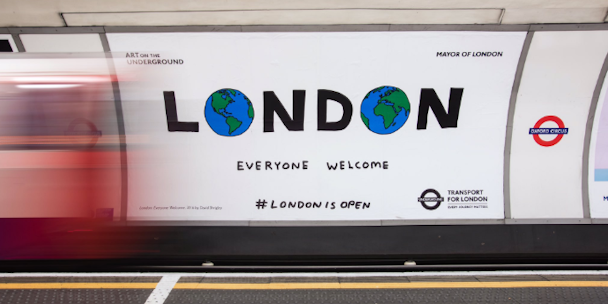TfL's top marketer: ‘If we took account of every complaint, we might never run any advertising’
Transport for London (TfL) has faced a number of advertiser-related challenges in recent years, drawing it into arguments over what is and isn’t acceptable marketing.

TfL
It is awaiting the outcome of a government review to potentially ban junk food ads and is in the midst of an initiative to ensure that ads are more reflective of the people using its services. But it’s accepted that it will never be able to please everyone.
TfL’s advertising policies have been under the gaze of London mayor Sadiq Khan for some time. Two years ago, following the backlash against the Protein World ‘Beach Body’ campaign which was criticised for promoting unrealistic body standards, Khan made it his mission to rid the tube, bus and rail network of “body shaming ads”.
A policy has since been put in place which Chris MacLeod, customer director at TfL, tells The Drum has been “relatively good” in preventing this kind of advertising from appearing. But he admits it's tricky trying to weigh the product being promoted – from a fitness drink to suncream or a fashion brand – with the models being used.
“We've not had any issues of it but it's a complex area, especially when you get into advertising different sorts of products. London is a diverse city and probably some people will be always upset by certain things, but generally it's gone pretty well,” he said.
“We do have to recognise that it's a public network but if we took account of everything we would probably take no advertising.”
The marketer is now dealing with the equally tricky area of junk food ads – trying to retain big budget advertisers like Coke and McDonald’s amid increasing pressure to stop them advertising on public transport altogether.
Earlier this year mayor Khan pushed forward his agenda to ban any advertising that promoted food and drinks classed as high in fat, salt or sugar by the Food Standards Agency.
At the time, TfL suggested that if given the go-ahead it would cost the travel body up to £13.3m per year in lost advertising revenue, a blow to the organisation which saw its operating deficit had surge by 26% to £1bn in the year to March 2018.
MacLeod, however, admitted that this might not be a wholly accurate portrayal of the impact a ban would have, saying the exact figure was probably “impossible” to estimate.
“If you looked at [junk food ads] today and stopped it today it could be something like £23m,” he said. “But there was no accounting for whether they would be replaced [by other advertisers]. It was meant to be indicative. It would really depend on how advertisers respond."
The consultation into the proposed ban, led by the mayor, is ongoing and MacLeod added that there has been “good feedback” though declined to offer any more guidance on what the likely outcome would be.
“The mayor’s office is assessing everything and I don't know the exact timetable [for a final decision],” he said.
However, he was confident that TfL would be unlikely to see a loss of revenue to the extent it had initially predicted.
Many big food and drink advertisers have already begun to reformulate their products to lower the fat, sugar and salt content and are opting to promote them in ads – meaning they may escape any ban.
MacLeod was interviewed by The Drum at the Direct Marketing Association's customer experience event in London last week. A summary of the event can be found here.

